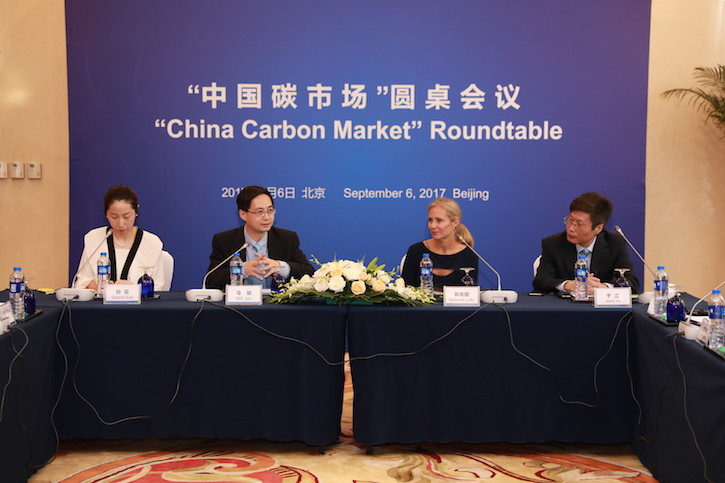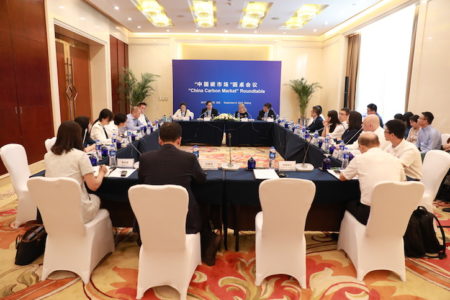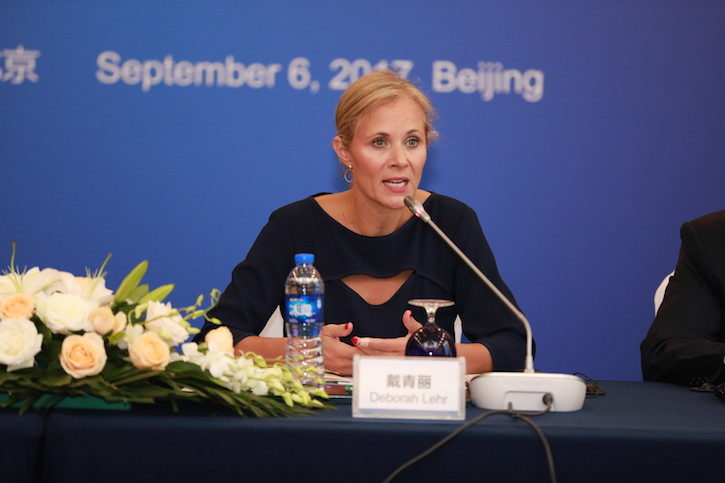
China’s plans to launch a unified carbon market later this year will create the largest experiment to date in carbon trading. While the market will start on a small scale, with possibly as few as two industries or just the power industry covered, it will eventually cover the major polluting sectors in China. China has ambitions to expand the market domestically—and even internationally. But before China can achieve this grand vision, there are some important and practical steps that must be taken.
 Earlier this month, the Paulson Institute and the Green Finance Committee (GFC) of China hosted the China Carbon Market Roundtable. Nearly forty leading experts from finance, trading and environmental policy met to discuss the challenges of launching this important initiative and develop policy recommendations to help ensure its success. This roundtable is the first in a series that the Paulson Institute and the GFC will convene over the next year.
Earlier this month, the Paulson Institute and the Green Finance Committee (GFC) of China hosted the China Carbon Market Roundtable. Nearly forty leading experts from finance, trading and environmental policy met to discuss the challenges of launching this important initiative and develop policy recommendations to help ensure its success. This roundtable is the first in a series that the Paulson Institute and the GFC will convene over the next year.
A number of key themes emerged from the discussions:
Regulation: It is strongly recommended that while regulation is important, it is better to have less in the beginning. Too much regulation will stifle trading, so better to let the trading start strong and have the regulatory structure “catch up.”
Legal Framework: It is important to develop and enforce a world-class legal structure, which still does not exist for carbon markets in China.
Policy Coordination: There are many ministries and regulators involved in the launch and oversight of the carbon market, but the reporting lines are still unclear.
Governance: It is vital to have a clear and transparent governance structure for the carbon market exchanges.
Capacity Building: As it is such a new field, few experts have the environmental and trading knowledge to support the effective launch and operation of a unified carbon market.






